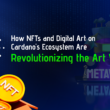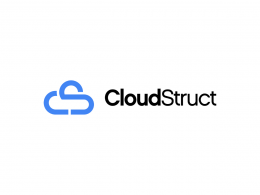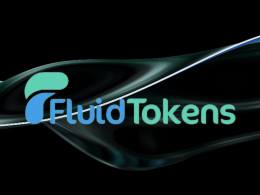Stakepool Operators (SPOs) are the pillars of decentralization in Cardano, since they build the blockchain from the consensus protocol.
Learning technical knowledge is required to run and manage a Cardano stakepool. Many SPOs struggle with the task of getting delegation, or else shutting down their pools.
Most SPOs know their technical job well, and it’s not difficult for them to do it. However, it can be frustrating for some to get the necessary delegation to have more luck being chosen by the consensus protocol, Ouroboros, as the slot leader for forging blocks.
The best-known operators, those with the most promotional skills, such as influencers, are the ones with the most delegation and, with that, the most possibilities of validating transactions and receiving rewards. SPOs that have a more technical profile, and do not have a time or communication profile, suffer from low staking. In essence, the technical work they develop perfectly meets the requirements to be able to validate blocks, but in Proof of Stake (PoS), with little delegation, the probability of forging blocks and earning rewards is very low.
When small SPOs cannot achieve delegation, that flow of funds is concentrated in other stakepools, and thus decentralization in consensus is lost.
Currently, in epoch 356 there are 3,187 total stakepools, of which 2,080 (65%) have not signed blocks, of which 1,860 have delegation, and 220 have no delegation. There are more than 1,300 pools with less than 2 million ADAs in active participation, a minimum amount that currently allows you to sign blocks on a regular basis, and thus collect rewards for your work and maintain your pools in the long term.
Consensus concentration can be measured by the Minimum Attack Vector (MAV) which shows the number of participants holding 51% staking. Currently on Cardano, 23 SPOs, from their controlled stakepools, reach 51% consensus.
The project is to build a platform that provides Single Stakepool Operators with a tool so that their pools can be promoted to capture delegation, from the work of promoters and content creators and NFTs, and share the rewards fairly .
ADA Link will be the first Cardano platform, connecting SPOs with proxy promoters.
The idea of this proposal is to adapt affiliate marketing, a proven advertising model, where affiliates are responsible for promoting products or services through benefits for their buyers.
The project seeks to benefit the pillars of decentralization in Cardano, using the favorite tool of Web3, NFTs.
The team is confident that the platform will have a positive impact on the decentralization of the network.
The NFT (Non Fungible Token) policy will be used to identify the delegation that will come from the promotional work. Thus, this platform will provide a particular utility to NFTs, helping to promote SPOs and the decentralization of the network, incentivized by rewards.
ADA Link will take advantage of the capacity of NFTs as an instrument of identification of the work of the promoters, with the exact amount of delegation coming from their management, by tracking the NFT ID policies linked to the accounts in staking.
Thus the promoters will create alliances with the SPOs, and will collect a commission on the margin rewards of the SPOs.
In addition, ADA Link will make it easier for delegators to find SPOs that are currently not visible due to lack of promotion.
In the future, many influencers and promoters will be able to launch their own NFT collections, and by using ADA Link they will be able to generate additional passive income.
At the regional level, local companies and associations can promote delegation to an allied stakepool by creating NFT collections that offer products and other benefits to their customers, members and/or employees.
Any SPO, you can register your pool on the platform, or also the creators of your NFT Project or, in the case of whales, (wallets that have more than 1 million ADA) will be able to use your wallet address to log in and increase your passive income.
To encourage fair distribution of delegation, 10 million ADA per alliance is the maximum amount that can be applied in ADA Link.
SPOs will be able to customize their profile and add parameters to the offers they are willing to accept. All registered users can offer/add/edit alliances. And SPOs can have multiple allies.
After choosing an SPO, any ally can make an offer by submitting the NFT policy ID, the number of epochs the alliance will last, and confirming the wallet address that will receive the rewards.
The NFT Policy ID can only be in one alliance at a time.
The platform will calculate an estimate of rewards based on the staking in the pool with which the alliance was made, and in proportion to the funds in the wallets with the NFTs that identify the promoted delegation.
The platform will split stakepool margin rewards proportionally based on the amount of delegation from each ally. The rewards from the first block of each epoch cannot be split, it will always go to the SPO and no block equals any reward.
The NFT ally can promote the delegation to its stakepool in the way it deems appropriate.
At the end of each epoch, the platform prepares a transaction to be signed by the SPO to distribute the rewards according to each ally’s calculated split. Allies will receive their share of the rewards as soon as you sign the SPO.
SPOs will receive all relevant information about their current alliances.
A specific policy ID can be searched for to verify the data associated with it. Such data may contain the current stakepool ally, reward status, reward history, etc. This will keep the information easy to read so the community can keep an eye out for bad actors.
The workflow will be presented as follows:
The Roadmap
Starting in the fourth quarter of 2022, the milestones will be broken down monthly:
- Month 1: Research & Pre-Production
- Month 2: UI/UX Development
- Month 3: Preparing the database architecture. Developing backend scripts/engines to keep track of all relevant data (registered policy IDs, their holders and relevant stake pools).
- Month 4: Integrating both frontend and backend. Iterating on both ends, ie expanding, adding and editing features.
- Month 5: Platform testing and preparing for deployment and platform promotion.
- Month 6: Platform deployment and debugging. SPO and NFT Projects onboarding.
- Month 7: More SPOs and NFT Projects onboarding and more platform debugging.
The team is experimenting with ideas for implementing smart contracts to make this possible and if successful it will be featured in a new round of Catalyst.
The success metric is the number of SPOs and NFTs projects actively using the platform.
The Budget
- Platform Development: 500 hours, 6 months, part time: USD 49,500
- Project Management: 480 hours, 6 months, part time: USD 25,000
- Community Manager: 480 hours, 6 months, part time: USD 12,000
- First year of Servers /APIs: USD 1,100
Total requested: USD 87,600
The Team
Developer. Mahmoud Nimer is a Mechanical Engineer with a Master of Science degree in Control Systems and Robotics (Mechatronics Engineering). Worked in research and development for two years before focusing on industrial automation engineering for more than 5 years. He has been an active builder in the Cardano ecosystem and has been the developer of well known NFT projects such as, Zi Project, Over Exposed, Ugly Bros S2, JAR Heads, Shroom Publishing/ Shroom ATM.
Project Management: With a Bachelor of Science Degree in Film, Natalia Rosa has directed and supervised departments of production of different media projects and has over 10 years of experience working in film, television, and multi-media promotional campaigns. LinkedIn
Community Manager: Gisela Rosa is a professional musician who works as Social Media Manager for Blockverse Media, Inc. managing La Cryptoría’s account. Known as $Ms.Arcella, she has been a strong supporter of multiple projects building on Cardano since epoch 259, always promoting Cardano’s values in the cardano community.
Website: https://adalink.io
Twitter: https://twitter.com/ADALink_io
. . .
You can see the original proposal at Catalyst: SPOxNFTs: A Decentralization Tool










